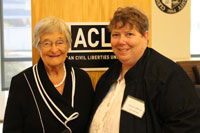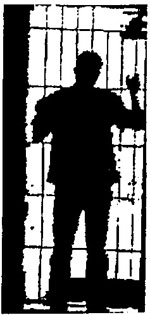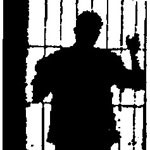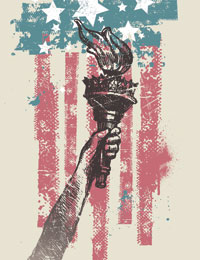News & Commentary
Inspiring a New Generation of Activists
Belle Likover and Susan Galloway
By Jocelyn Rosnick

You Are Never Too Young To Ask For an Attorney
“We are only 14 years old. We aren’t thinking about lawyers,” a teen declared in the middle of a presentation I was giving at his high school.

The Real Problem in Ferguson
Michael Uth is a member of the ACLU of Ohio Board of Directors.

Missed Opportunities: Using Medicaid Expansion at the Local Level to Reduce Costs and Save Lives

Giving a Voice to Those Impacted by the War on Drugs
Last week, I attended the Drug Policy Alliance’s International Drug Policy Reform Conference held in Denver, Colorado. The Drug Policy Alliance and its talented staff did a masterful job of putting together a conference that gave a voice to many people impacted by the War on Drugs while highlighting the multitude of reasons why this destructive war must end.

The Cincinnati Collaborative Agreement
The Cincinnati Collaborative Agreement is one of the most innovative plans ever devised to improve police-community relations. Created as a response to a community troubled by ongoing violence and lack of understanding between police and community members, the agreement engages both police and everyday citizens to invest in the neighborhood and make their environment a better place for both groups. The agreement resulted from a settlement after the ACLU joined with the Cincinnati Black United Front to file suit in 2001 alleging racial profiling and discriminatory law enforcement. Enacted in April 2002 with a five-year time frame, the agreement outlined these objectives:

Stay Informed
Sign up to be the first to hear about how to take action.
By completing this form, I agree to receive occasional emails per the terms of the ACLU’s privacy statement.
By completing this form, I agree to receive occasional emails per the terms of the ACLU’s privacy statement.

